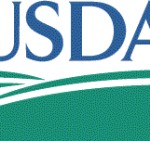The Government Accountability Office has released a new report that states the FDA and USDA should strengthen their pesticide residue monitoring programs and disclose the limitations of their systems. The most recent data from 2008 through 2012 shows that residue in 10 selected fruits and vegetables is low, but the monitoring approach has limitations. GAO found that FDA tests relatively few targeted samples for residues. For example, in 2012, the agency tested less than one-tenth of 1 percent of imported foods. And the FDA does not test for some commonly used pesticides with an EPA established tolerance. Unfortunately, this list includes glyphosate, the main ingredient in Roundup, which is used on GMO crops that have been manipulated to be resistant to the chemical. Recent studies have … [Read more...]
Advocates Want to Stop Imported Beef from Privatized Inspections
Food & Water Watch is asking the USDA's Food Safety Inspection Service (FSIS) to revoke the recognition of privatized inspection practices used in several countries that export red meat to the U.S. Those countries are Canada, Australia, and New Zealand; government officials there have replaced government meat inspectors with company employees. A petition was filed June 6, 2014. These systems have been inspected by U.S. officials and found to be flawed. The Canadian High Line Speed Inspection System had numerous violations for improper sanitation, humane slaughter violations, and lack of enforcement of regulations. The Australian Expert Meat Inspection System is problematic; an email in December 2012 from Dr. Langbridge, Veterinary Counsel for the Australian Meat Industry Council … [Read more...]
Food & Water Watch Criticizes USDA Meat Inspection Plans
Tony Corbo of Food & Water Watch states that the USDA is "dismantling the meat inspection system as we know it." Information received through the Freedom of Information Act from USDA's FSIS had a spreadsheet with the number of temporary inspectors hired and where they are working. Last December, FSIS posted "As the Food Safety and Inspection Service looks to transition through modernization and implementation of the New Poultry Slaughter Inspection System, the Agency is announcing temporary Food Inspector positions to facilitate the transition and to help ensure seamless implementation should the Agency decide to proceed with implementation of the new system." That new system, commonly known as HIMP, has been heavily criticized by many consumer, food safety, and worker safety … [Read more...]
Food & Water Watch Criticizes Parts of USDA Salmonella Action Plan
Food & Water Watch is critical of parts of the USDA Salmonella Action Plan announced yesterday. The proposal includes HIMP, the HAACP-Based Inspection Models Project announced last year that is basically a deregulation of the poultry industry. Wenonah Hauter, Food & Water Watch executive director said in a statement, "USDA's Food and Safety Inspection Service wants to expand a pilot project in place in two dozen plants to 200 poultry plants across the country. The proposed change would remove most FSIS inspectors from the slaughter lines and replace them with untrained company employees, allowing processing companies to police themselves. "This fall, the Government Accountability Office released a report on the pilot project that is being used to justify this proposed change. … [Read more...]
AMI Wants FSIS to Withdraw Mechanically Tenderized Meat Rule
The American Meat Institute has commented on FSIS's proposed new rule to label mechanically tenderized beef, stating that they are opposed to labeling because "the food safety risk associated with mechanically tenderized beef products is very low and does not warrant the proposed labeling." Consumer Reports states that there have been at least five outbreaks of E. coli O157:H7 linked to mechanically tenderized beef between 2003 and 2009, causing at least 174 illnesses and killing one person. And since those cases are drastically underreported, making the multiplier for E. coli as large as 27, that means 4,698 people may have been sickened in those outbreaks. And last year, there was an E. coli O157:H7 outbreak in Canada linked to mechanically tenderized steak that sickened 18 people. In … [Read more...]
Food & Water Watch Concerned About Contaminated Meat from Australia
Food & Water Watch has issued a statement saying that six months after they sent a letter to Agriculture Secretary Tom Vilsack about how the Australian Export Meat Inspection System (AEMIS) led to an increase in import rejections of unsafe Australian meat, the problems have not improved. A new letter has been sent about this matter. Wenonah Hauter, Executive Director of Food & Water Watch said in a statement, "we're calling on Secretary Vilsack to start the process to revoke the equivalency status of Australia's privatized inspection system. The latest import rejections for visible fecal and ingesta contamination point to a failed system. USDA recognized this privatized inspection model in 2011 in its haste to backdoor a privatized inspection system here in the United STates. … [Read more...]
OIG Audit Finds Beef Not Adequately Tested for E. coli
The Office of Inspector General of the USDA recently reviewed FSIS testing of boxed beef that is processed into ground beef or mechanically-tenderized steaks to see if the processes are adequate and used effectively to determine the sources of E. coli contamination. They found that FSIS needs to re-evaluate its methodology, since all boxed beef product is not adequately tested. Downstream processors grind boxed beef without sampling it for E. coli. In addition, grocery stores, butcher shops grind their own beef but FSIS does not sample and test trim at these facilities. E. coli 0157:H7, along with six STEC bacteria (Shiga toxin producing E. coli) are considered adulterants in raw beef. The report details twelve recommendations in response to five findings, including planning to modify … [Read more...]
Secretary Vilsack Responds to Cattlemen About Sequester Effects
Last week Agriculture Secretary Tom Vilsack stated in a press conference that sequestration could lead to temporary layoffs of federal meat inspectors. That action would stop meat and poultry processing in this country for that time period. The meat industry responded to this statement by arguing that the USDA is "legally obligated" to provide inspectors at meat plants. National Cattlemen's Beef Association president Scott George said in a statement, "while we are certain the USDA contains other 'non-essential' employees, the Secretary has chosen to announce the consequences of sequestration in terms of a furlough of FSIS inspectors, essentially threatening to close down all production, processing and interstate distribution of meat. This action has already cost cattle producers … [Read more...]
FSIS Announces Cut in Import Inspections Four Years Later
The USDA's Food Safety and Inspection Service (FSIS) has published a notice in the Federal Register that it made a major change to the way it inspects countries that are eligible to export meat, poultry, and egg products to the U.S. The notice is Ongoing Equivalence Verifications of Foreign Regulatory Systems, Docket No. FSIS-2012-0049. Food & Water Watch has issued a press release about this action. They say that the announcement and accompanying public comment period regarding changes in this program are "too little, too late," since the change took place four years ago, at the beginning of the Obama Administration. Wenoah Hauter, executive director of Food & Water Watch, said, "It is time for the Obama administration to fund this vital consumer protection program … [Read more...]
FSIS To Require Test and Hold for Non-Intact Raw Beef Products and Ready-to-Eat Foods
The USDA's Food Safety and Inspection Service announced Friday that, in 60 days, they will require producers of non-intact raw beef and all ready-to-eat meat and poultry products to hold shipments until they pass agency testing for pathogens. This critical step will help prevent food poisoning outbreaks and recalls that result when a shipped product tests positive for contamination. USDA Under Secretary for Food Safety Dr. Elisabeth Hagen said, "this new policy will reduce foodborne illnesses and the number of recalls by preventing contaminated products from reaching consumers. Many producers hold products until test results come back. We're encouraging others in the industry to make this a routine part of operations." The new policy means establishments and food importers must … [Read more...]












